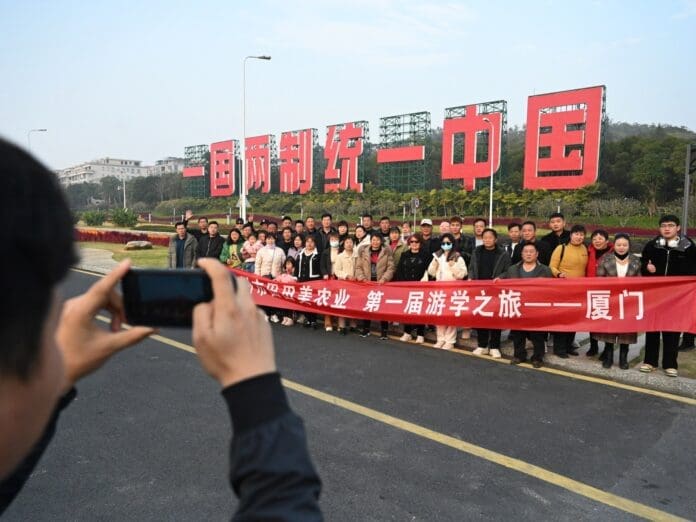Stopping at the edge of the water where gentle waves lapped against the sand, Shao pointed towards the sea and the Kinmen archipelago – once a battleground in the 1940s and 1950s, now peaceful. After the communists won the Chinese Civil War in 1949, the nationalists of the Kuomintang (KMT) fled to Taiwan, making Kinmen their stronghold against repeated communist invasion attempts. Today, Kinmen remains a part of Taiwan’s territory.
While Chinese citizens like Shao were once able to visit Kinmen and Taiwan with tourist visas, the pandemic has put a halt to such trips. Despite Chinese President Xi Jinping and the ruling Chinese Communist Party (CCP) claiming Taiwan as part of China, tensions have been escalating near Kinmen in recent months with incidents involving Chinese fishermen and the Taiwanese coastguard.
Many Chinese, including Shao, prefer peaceful unification with Taiwan, fearing the consequences of a war between China and Taiwan. A recent study suggests that a significant portion of the Chinese population opposes a war over Taiwan, with young people especially averse to conflict. The CCP, however, continues to push for unification with Taiwan, even as public sentiment may not necessarily align with the party’s narrative.
In the current political climate, where Xi Jinping’s leadership has become increasingly centralized, and public backlash against government actions has been evident, the feasibility and consequences of a potential war for unification are being questioned. While the CCP may engage in low-cost operations against Taiwan, the idea of a full-scale war is met with skepticism and concern. For Shao and many others, war is not the answer, and any attempt to resolve the Taiwan issue through conflict would be detrimental to all parties involved.
